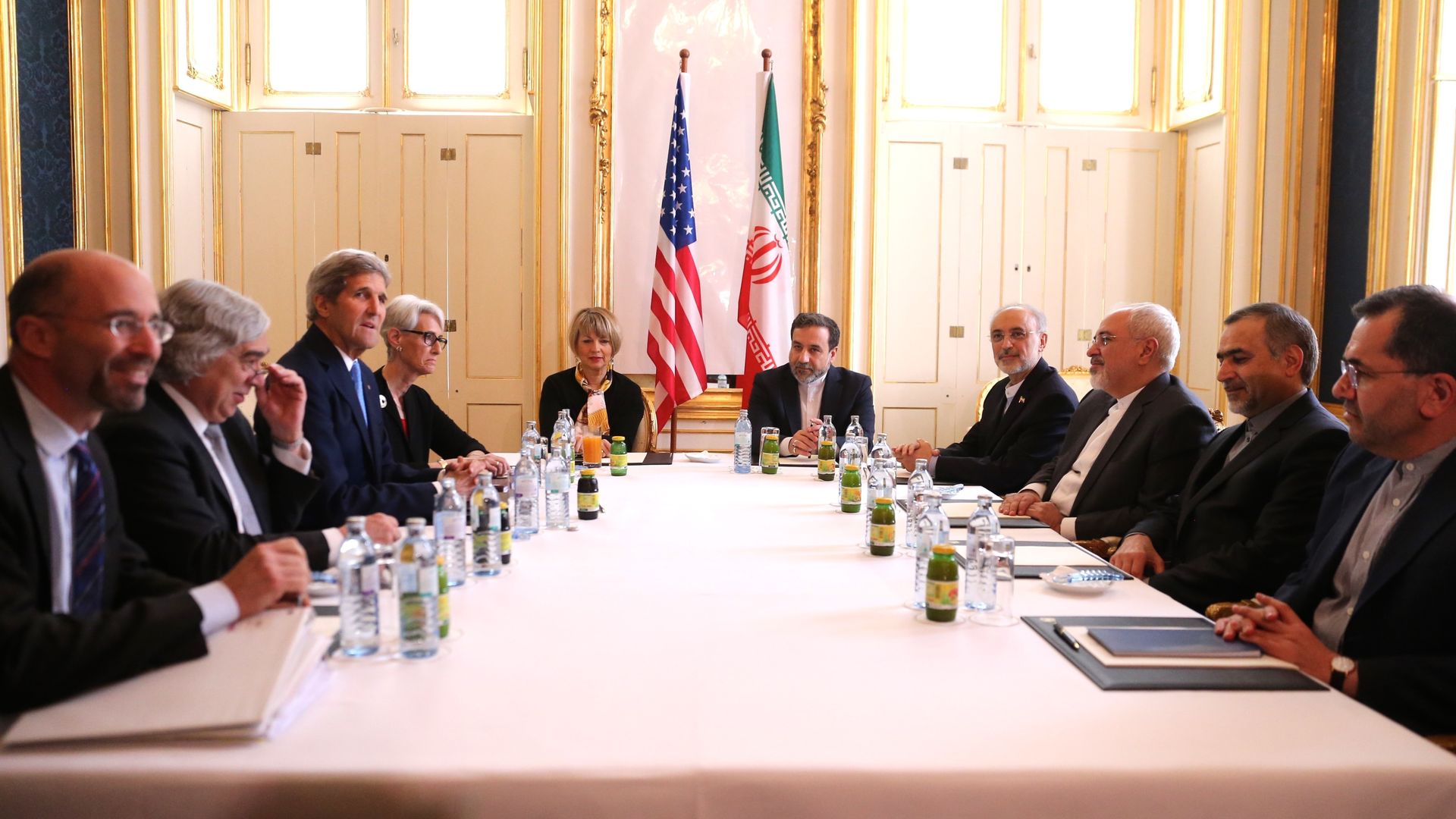Blinken wants Iran team with range of views on nuclear deal
Add Axios as your preferred source to
see more of our stories on Google.

Malley (L) in negotiations with the Iranians in Vienna in 2015. Photo: Siamek Ebrahimi/Anadolu Agency/Getty Images
Secretary of State Tony Blinken has asked newly appointed Iran envoy Rob Malley to form a negotiating team made up of diplomats and experts with a range of views on the path forward with Iran, U.S. officials tell me.
Why it matters: Those instructions indicate the Biden administration is attempting to avoid groupthink when drafting its policies on Iran, while also signaling to critics that a diversity of views will be taken into consideration.
Blinken even asked Malley to bring in people who are “more hawkish” on Iran, according to a source close to the administration.
- Malley is only beginning to form his new team. Once it's in place, he'll start to develop a strategy for re-engagement with Iran.
- Malley is in touch with his European counterparts as well as officials from Israel and the Gulf countries, the U.S. officials say.
- Between the lines: Israeli and Gulf officials have told me they're concerned that Malley is too soft on Iran.
What they're saying: "Secretary Blinken is building a dedicated team, drawing from clear-eyed experts with a diversity of views," State Department spokesperson Ned Price told me.
- "Leading that team as our special envoy for Iran is Rob Malley, who brings to the position a track record of success negotiating constraints on Iran’s nuclear program. The secretary is confident he and his team will be able to do that once again."
Between the lines: Malley helped negotiate the 2015 deal and has been a prominent advocate of both the U.S. and Iran returning to the original agreement before negotiating a broader deal.
- He told Axios last month that both sides had incentives to complete that "compliance for compliance" process before Iran's presidential elections in June.
The state of play: The Biden administration and the Iranian government both support that framework in principle.
- The main divergence has to do with sequencing: The U.S. is offering sanctions relief after Iran returns to compliance, but Iran has insisted the U.S. lift sanctions first.
- Iranian Foreign Minister Mohammad Javad Zarif hinted at a middle path on CNN on Monday, proposing a mechanism to “synchronize or coordinate” steps by both sides.
- Price reiterated Biden's commitment to return to compliance if Iran does first and then use the 2015 deal as a platform to build a longer and stronger agreement that also addresses other areas of concern.
- But, he cautioned, "we are a long way from that point as Iran is out of compliance on a number of fronts and there are many steps in the process that we will need to evaluate. We will coordinate closely with our allies and partners, as well as with Congress," Price said.
What to watch: Iran has continued to take new steps in violation of the deal in recent days, including operating advanced IR-2M centrifuges at its Natanz facility and installing new IR-6 centrifuges at its Fordow nuclear site.
- Malley told Axios last month that certain steps would increase the pressure on Biden to make a deal, but "there comes a point at which more pressure might mean that the Biden administration will change course as well.”
